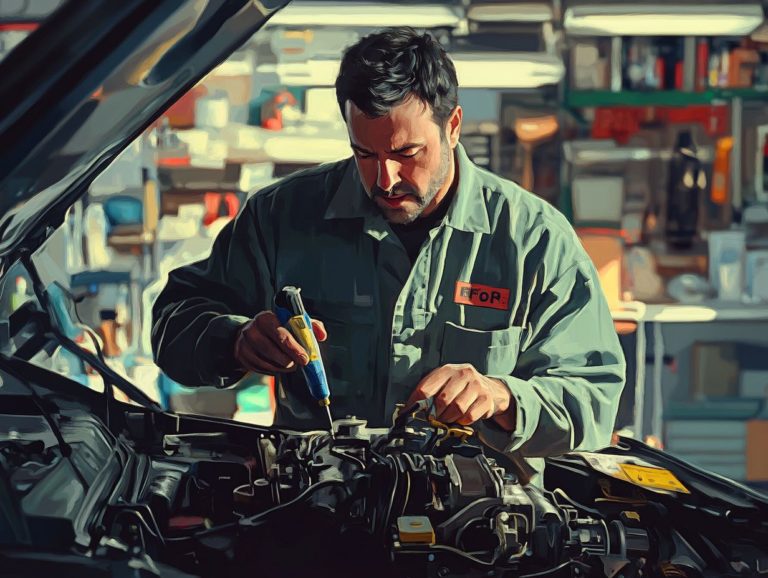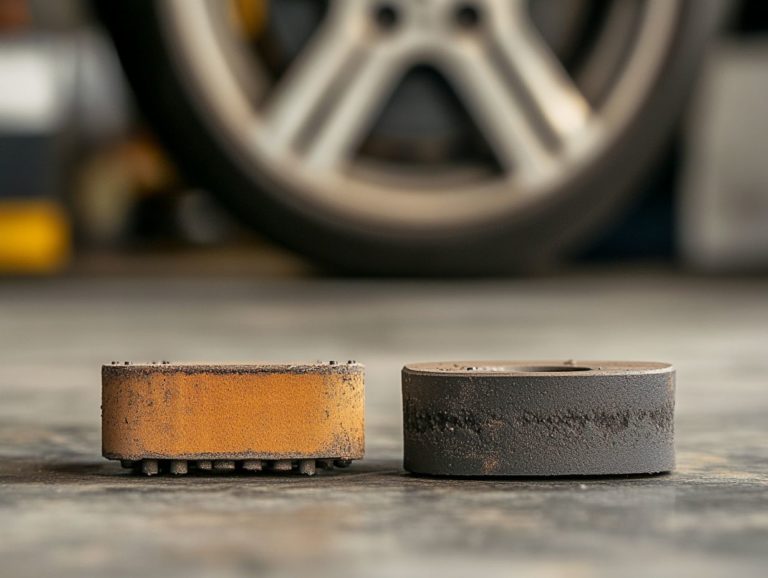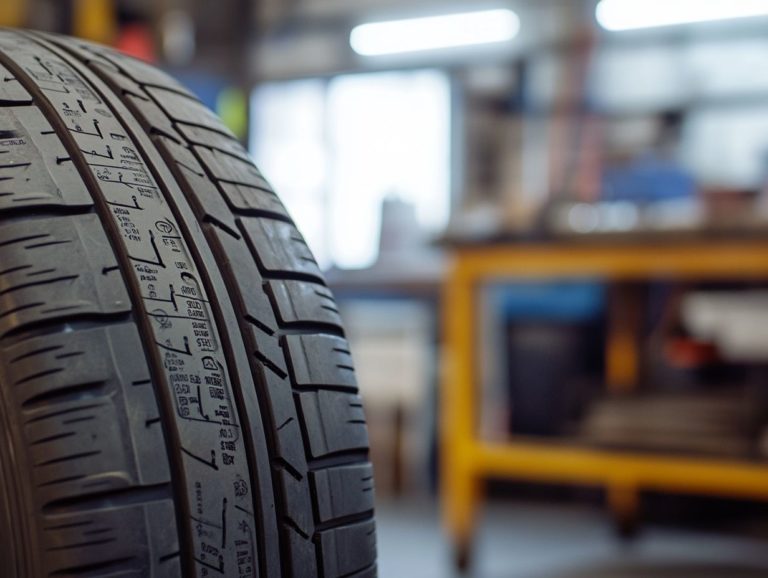What is a Tune-Up and When is it Needed?
A tune-up is crucial for preserving your vehicle’s performance and extending its lifespan. But what does that entail?
This article delves into the definition and purpose of a tune-up, highlights common signs indicating it is time for one, and explores the myriad benefits of keeping your car finely tuned.
Whether you are a DIY aficionado or contemplating professional help, this comprehensive guide will assist you in navigating the process. It ensures your ride remains in optimal condition.
Contents
Key Takeaways:
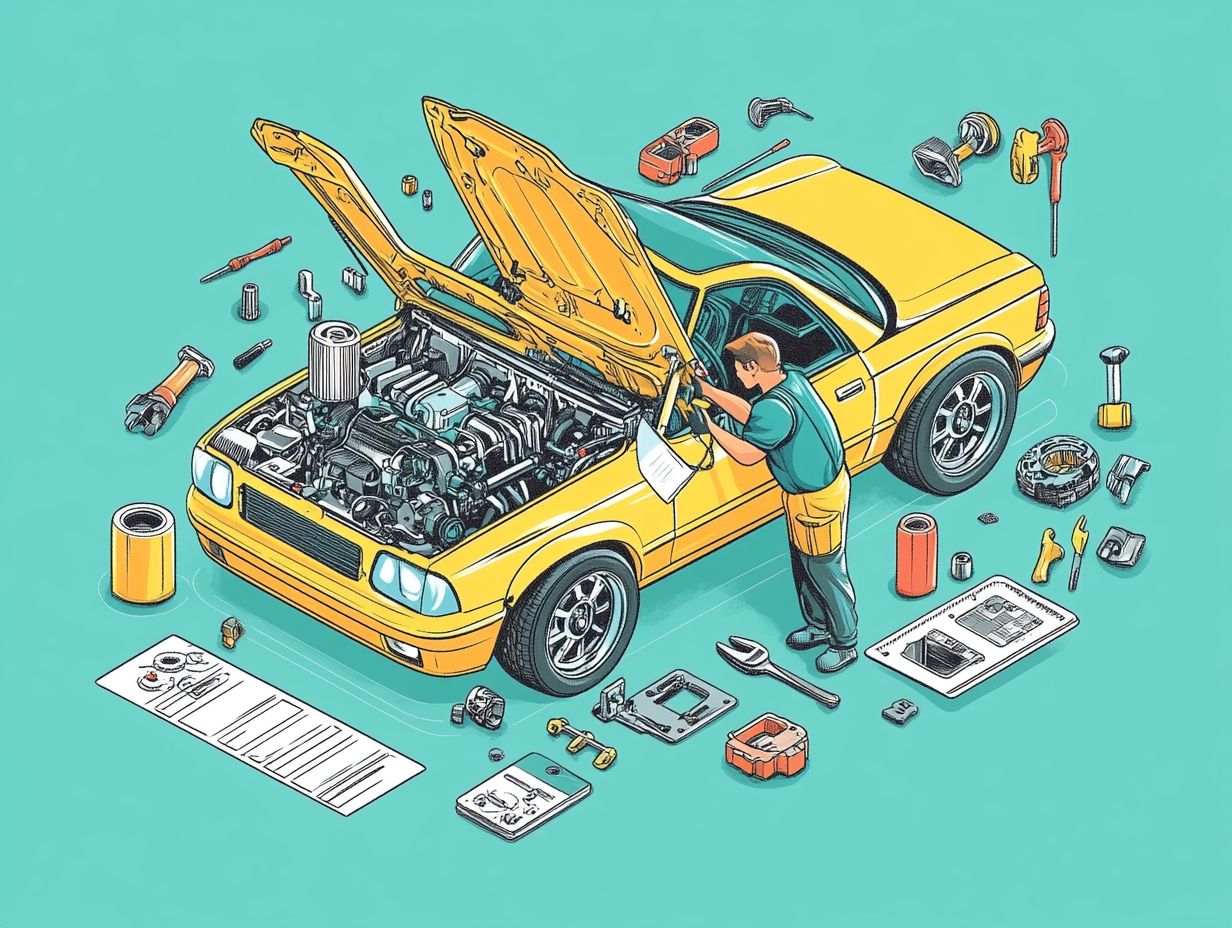
- A tune-up is regular maintenance that checks and replaces key components for optimal performance.
- Warning signs such as decreased fuel efficiency, rough idling, and trouble starting indicate the need for a maintenance service.
- Don’t wait! Regular tune-ups can boost your vehicle’s performance dramatically and prevent costly repairs in the future.
Understanding a Tune-Up
A tune-up is an essential part of car maintenance that focuses on optimizing engine performance and enhancing fuel economy.
This comprehensive process keeps your vehicle running at its best by following the guidelines laid out in your vehicle manual, which details necessary steps for preventative maintenance.
Regular tune-ups help identify engine issues early. This ensures your vehicle remains reliable and efficient over time.
This involves a series of important tasks, such as:
- replacing spark plugs
- changing the air filter
- checking fluids
All of which are crucial for maintaining the longevity of your automobile.
Definition and Purpose
A tune-up is essentially a routine service designed to elevate your vehicle’s performance by addressing various maintenance components.
It goes beyond merely extending engine life; it plays a pivotal role in enhancing fuel economy and ensuring your vehicle operates at peak efficiency.
During a tune-up, essential tasks are performed, such as replacing spark plugs, inspecting ignition systems, and evaluating fuel injectors.
These tasks contribute to smoother engine operation. Additionally, checking and adjusting the air-fuel mixture and monitoring the exhaust system can significantly reduce harmful emissions while boosting overall performance.
This attention to detail makes your driving experience safer and more enjoyable.
Signs that a Tune-Up is Needed
Recognizing the signs that your vehicle needs a tune-up can save you from more serious engine problems later on.
Common indicators, such as decreased fuel efficiency, trouble starting, or that ominous check engine light illuminating your dashboard, are clear signals that it is time to arrange a check-up.
You might also notice unusual noises coming from the engine or a marked decline in performance. Both are unmistakable signs that demand your attention.
These warning signs underscore the importance of preventative maintenance and may even call for a professional inspection to keep your vehicle running smoothly.
Common Issues and Warning Signs
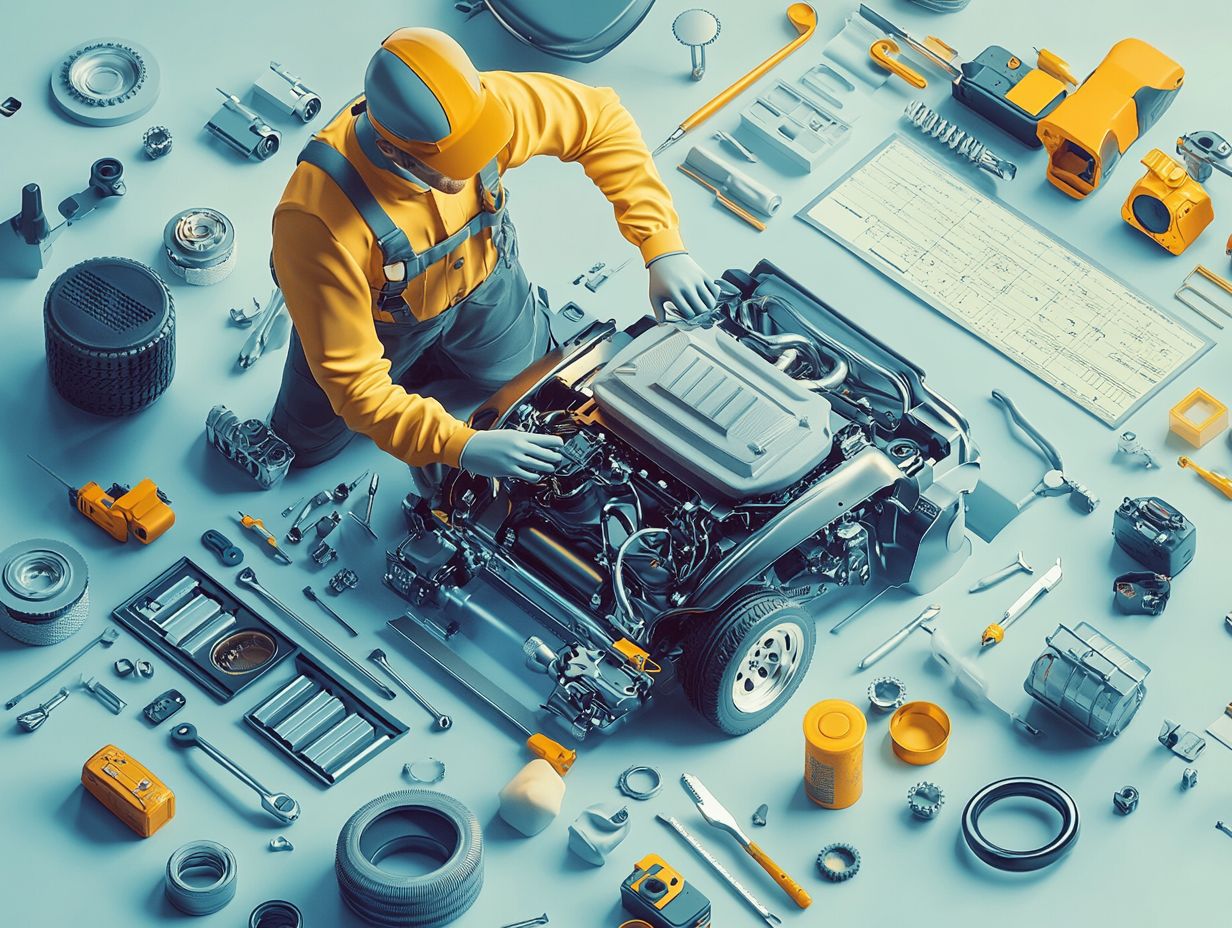
Common issues signal a need for a tune-up. Look out for warning signs like the check engine light flickering or unusual engine noises under the hood.
A persistent misfire often feels like rough running. It could indicate issues with your spark plugs or ignition coils, which need replacement during a tune-up.
If you notice decreased fuel efficiency, it s time to check your air and fuel filters. Also, hesitation when accelerating may link to problems with the throttle position sensor or fuel injectors.
Ignoring these signs may lead to costly repairs later.
Benefits of Regular Tune-Ups
Regular tune-ups offer many benefits. They boost your vehicle’s performance and longevity.
This proactive maintenance enhances engine performance and improves fuel efficiency for a smoother drive. Consistently addressing worn parts like spark plugs and air filters can save you from expensive repairs.
Improved Performance and Longevity
Regular tune-ups noticeably improve your engine’s performance and your vehicle’s lifespan. Consistent preventive maintenance helps tackle potential engine issues before they escalate.
Routine checks can catch worn spark plugs that cause misfires, leading to poor fuel efficiency. Replacing the air filter allows optimal airflow and prevents overheating.
Checking fluid levels, belts, and hoses helps avoid costly breakdowns. Committing to these measures leads to a smoother ride and lower repair costs.
How to Perform a Tune-Up
Performing a tune-up is easier with a step-by-step guide. Start by checking your vehicle manual for specific service intervals for spark plug replacement and fluid checks.
Inspecting timing belts and worn components can prevent serious engine problems. Keep your car reliable and efficient for years.
Step-by-Step Guide
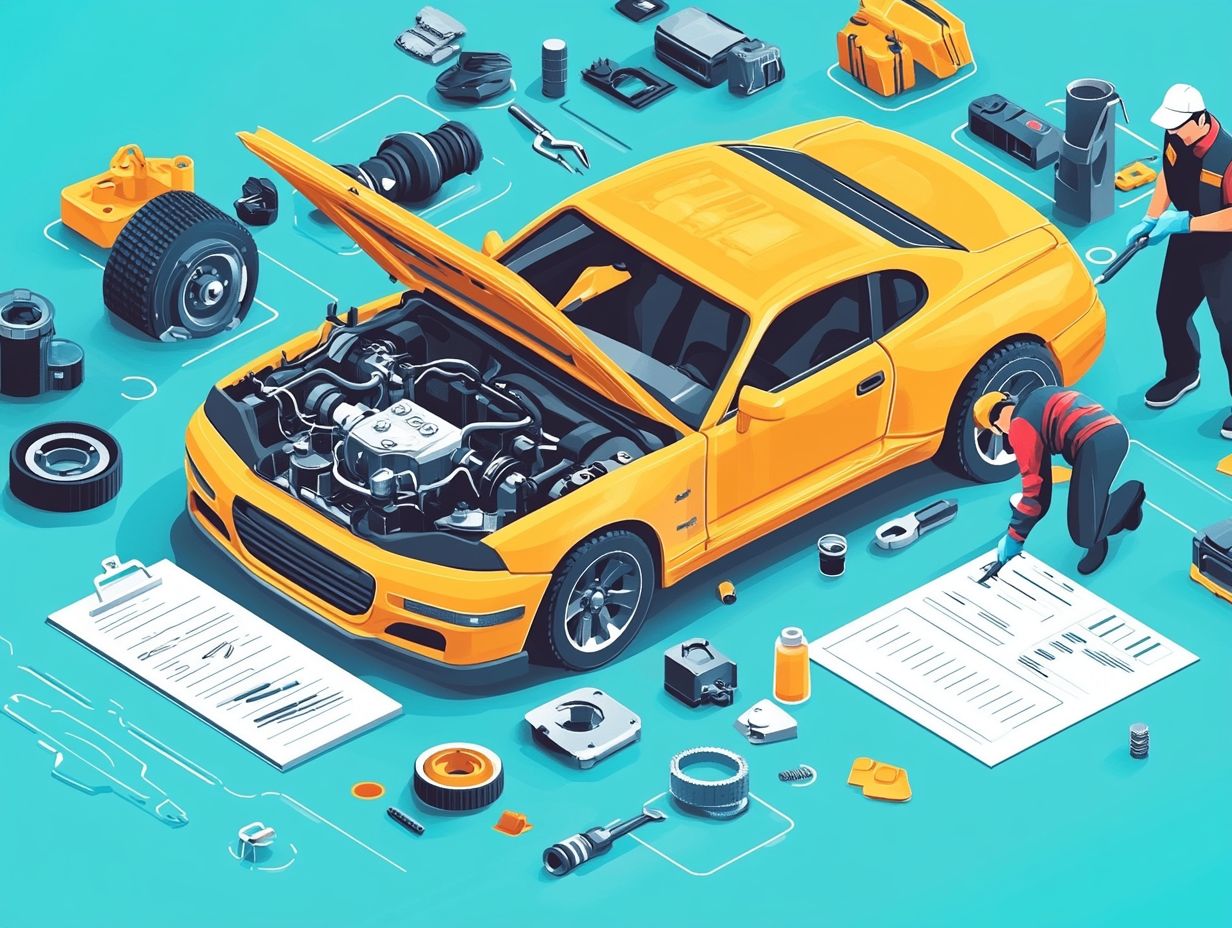
A comprehensive guide to performing a tune-up involves essential tasks designed to keep your vehicle running at its best. Key actions include replacing spark plugs, changing the air filter, and checking and refilling important fluids. By following these steps, you can significantly enhance your car’s health and performance.
Begin with the spark plugs. Replacing them is vital since they ignite the fuel-air mixture in your engine. Worn or faulty plugs can lead to misfires, reduced fuel efficiency, and sluggish acceleration definitely not what you want when you’re on the road.
Next up is the air filter. Changing this component is crucial for ensuring adequate airflow to your engine while protecting it from dirt and debris that can cause damage.
Regularly check and top off fluids like oil, coolant, and brake fluid. This simple maintenance can prevent serious engine issues.
Lastly, make sure to inspect the ignition system and battery. This proactive step can help you avoid unexpected breakdowns, making each tune-up a wise investment in maintaining your vehicle’s overall performance.
When to Seek Professional Help
Understanding when to seek professional assistance for your vehicle is essential for maintaining its performance and longevity. If you find yourself facing persistent engine issues even after regular tune-ups, it may be time to explore professional auto repair services.
Signs like recurring check engine lights, sluggish acceleration, or unusual noises often indicate deeper problems that warrant a thorough detailed check-up. A skilled technician can uncover underlying issues that might escape notice during routine maintenance, offering tailored solutions to restore your vehicle’s reliability and ensure it runs smoothly for years to come.
Indications for Professional Assistance
Indications for professional assistance often make themselves known when you encounter persistent engine issues, like unusual noises or performance drops that your regular maintenance can t seem to fix. These scenarios call for diagnostics to uncover any hidden problems that might threaten your vehicle’s reliability.
For instance, if your car starts rattling during acceleration or the check engine light stubbornly stays illuminated even after an oil change, these signals should definitely catch your attention. They could hint at serious issues such as internal engine wear or exhaust system malfunctions.
In such cases, act quickly to avoid serious damage and expensive repairs later on. By consulting a qualified mechanic, you ensure that any issues are tackled promptly, boosting both your vehicle s performance and safety while also prolonging the lifespan of key components.
Frequently Asked Questions
What is a Tune-Up?
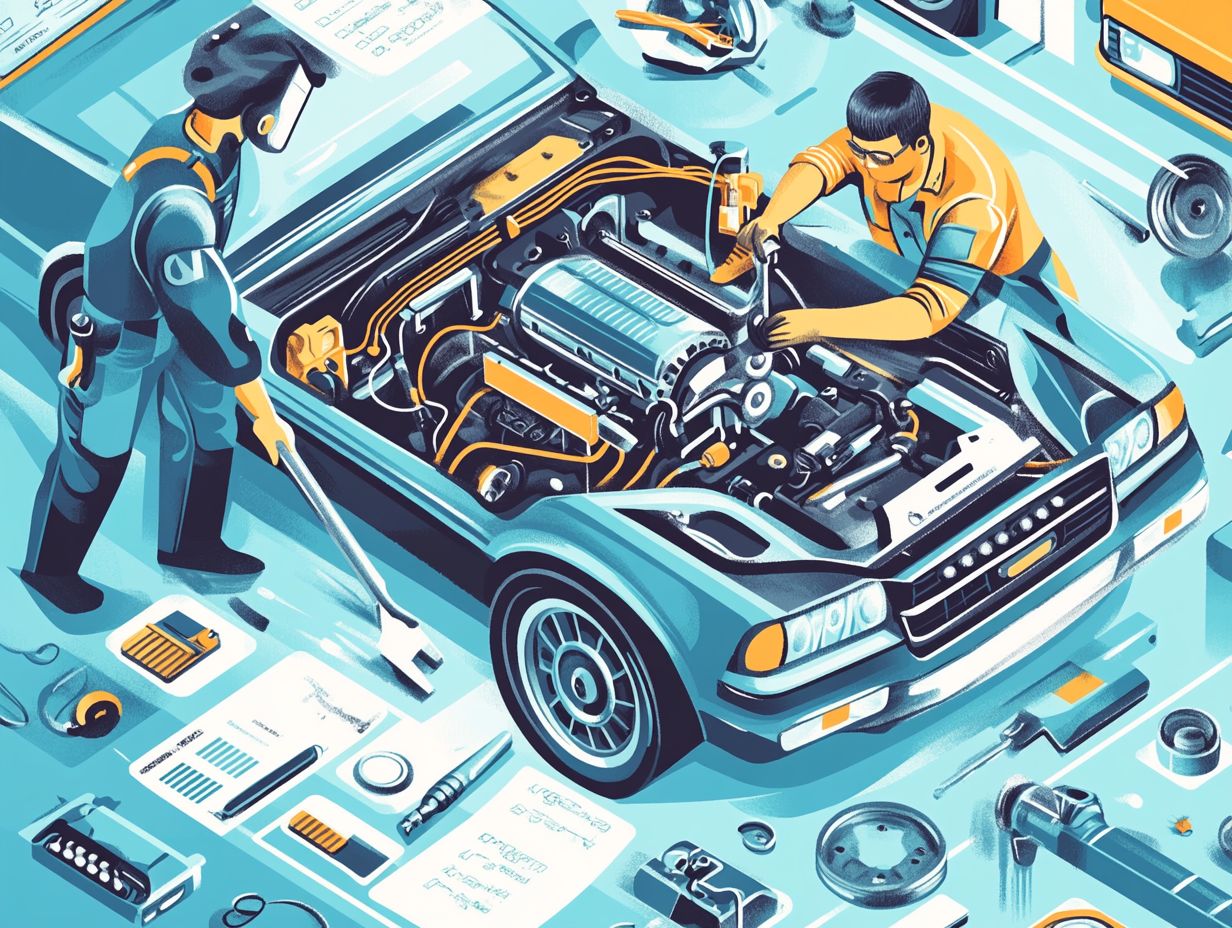
A tune-up is a maintenance service performed on a vehicle to ensure it is running at optimal performance. It typically involves checking and replacing necessary components such as spark plugs, filters, and fluids.
When is a Tune-Up Needed?
A tune-up is typically needed every 30,000 miles or every 2 years, but it may vary depending on the make and model of the vehicle. If your car is experiencing issues such as rough idling, decreased fuel efficiency, or difficulty starting, it may be time for a tune-up.
What are the Benefits of a Tune-Up?
A tune-up can improve the overall performance and efficiency of your vehicle. It can also help prevent potential breakdowns and extend the lifespan of your car. A tune-up can also save you money in the long run by addressing any small issues before they become major problems.
Can I Do a Tune-Up Myself?
While some basic maintenance tasks can be done at home, a tune-up typically requires advanced knowledge and specialized tools. It is recommended to have a professional mechanic perform a tune-up to ensure it is done correctly and efficiently.
What Happens During a Tune-Up?
A car expert inspects and replaces important parts during a tune-up. This includes spark plugs, filters, and fluids.
They also run tests to check if everything is working properly. After a tune-up, your car will run smoother and more efficiently.
You ll notice the difference on your next drive!
How Much Does a Tune-Up Cost?
The cost of a tune-up varies by vehicle make and model. On average, expect to pay between $50 and $150.
For the best estimate, consult your car expert. They can provide an accurate quote based on the services needed.


